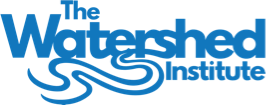 Polluted Stormwater Runoff
Polluted Stormwater Runoff
Cultivate knowledge about polluted stormwater runoff in local towns and cities and the impacts for water quality and ecosystems. We’ve developed a model ordinance that exceeds the state’s basic standards and continues to guide officials in crafting local ordinances to comply with the state rule, effective March 2021.
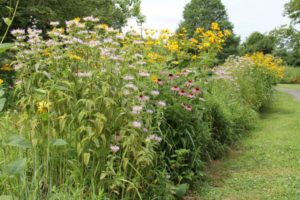 Green Infrastructure
Green Infrastructure
Educate and model the use of green infrastructure, such as rain gardens and swales, which mimic nature and filter pollutants with native plants and grasses. Our Watershed Center is a demonstration area for porous pavement, rain gardens, vegetated filter strips, and other green infrastructure. We offer certification and training to an array of professionals.
Unneeded Pipelines
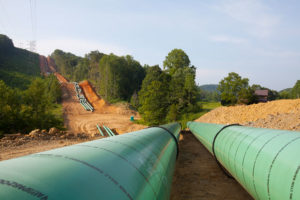 Helped defeat the proposed PennEast pipeline in late 2021 and continue to fight against other unnecessary pipelines that expose New Jersey residents, private and public lands to the risks of transporting natural gas to benefit of private, for-profit companies.
Helped defeat the proposed PennEast pipeline in late 2021 and continue to fight against other unnecessary pipelines that expose New Jersey residents, private and public lands to the risks of transporting natural gas to benefit of private, for-profit companies.
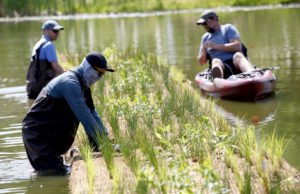 Scientific Fixes for Harmful Algal Blooms (HABS)
Scientific Fixes for Harmful Algal Blooms (HABS)
Design and adopt innovative ways to tackle harmful algal blooms (HABs) in local ponds, lakes and other waterways. We’ve built and deployed floating wetlands that grow hardy plants on a platform of soil/marine foam and absorb excess nutrients, such as pesticides and fertilizers, without the use of chemicals. These projects aim to make New Jersey waterways swimmable and fishable.
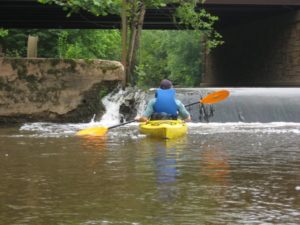 Removing Dams
Removing Dams
Rid the region of antiquated and useless dams that impede natural spawning grounds, and contribute to sedimentation. Once removed, waterways such as the Millstone River see the return of historic shad runs as well as other anadromous fish. Getting rid of dams allows for the natural flow of waterways and improves recreational opportunities.
